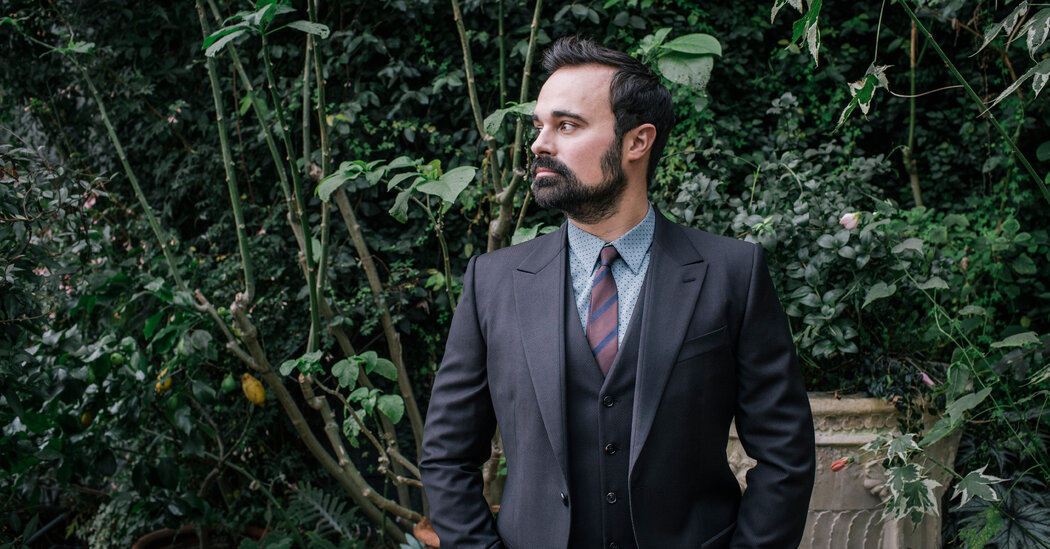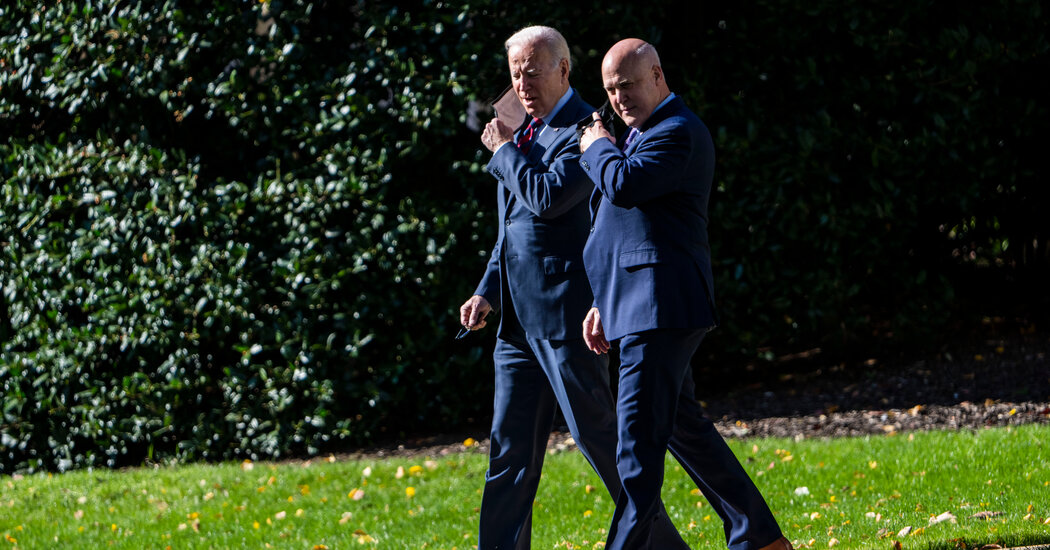
LONDON — Eighteen months ago, Evgeny Lebedev was ushered into the clubby inner circle of aristocratic Britain: the House of Lords, to which he had been nominated for a life peerage by his good friend, Prime Minister Boris Johnson.
This week, Mr. Lebedev, a 41-year-old Russian-British newspaper baron, found himself on far less comfortable ground. Writing on the front page of his paper, London’s Evening Standard, Mr. Lebedev implored President Vladimir V. Putin of Russia to call off his brutal invasion of Ukraine.
“As a Russian citizen I plead with you to stop Russians killing their Ukrainian brothers and sisters,” said Mr. Lebedev, whose father was once a K.G.B. officer. “As a British citizen I ask you to save Europe from war. As a Russian patriot I plead that you prevent any more young Russian soldiers from dying needlessly.”
Mr. Lebedev’s carefully calibrated message reflected the suddenly tricky landscape for wealthy Russians in Britain. Mr. Putin’s assault has thrown a harsh spotlight on oligarchs: Most amassed their fortunes thanks to their ties to the Russian leader. They have used London, with its laissez-faire regulatory climate, as a haven to stash wealth or to launder ill-gotten gains.
Now, with most of the Western world uniting against Mr. Putin’s aggression, Britain is moving to plug an embarrassing loophole to which it has long turned a blind eye.
On Tuesday, the government introduced new legislation in Parliament to try to curb the gusher of dirty money into Britain. Under the law, known as the Economic Crime Bill, foreign companies that own property would have to declare the true owners or could ultimately risk confiscation of their assets.
“They are beginning to feel the heat,” Misha Glenny, author of “McMafia,” a book on organized crime that inspired a popular TV series, said of the oligarchs. But he said of the plans to tighten the rules, “There is an element of shutting the stable door after the horse has bolted.”
The new legislation is targeted directly at elite Russians, who have hired battalions of lawyers, bankers and accountants to help them hide their wealth, much of which was amassed through cronyism. Many shield their identities behind shell companies that own property in London’s gilded neighborhoods.
Transparency International, which campaigns against corruption, estimates that 1.5 billion pounds ($2 billion) of British real estate has been bought by Russians accused of corruption or of having links to the Kremlin. Of that, almost 430 million pounds of property is in Westminster, near the heart of government, while 283 million pounds is in affluent Kensington and Chelsea.
The new legislation also aims to strengthen the use of “unexplained wealth orders,” a legal tool allowing the government to seize assets owned by people who cannot prove they were bought with legitimate funds. Since 2018, such orders have been invoked only nine times in four cases. Prosecutors have been reluctant to press cases because they can incur huge legal costs if the prosecutions fail.
“This is a significant step forward in terms of tackling Russian money,” said Rachel Davies, head of advocacy at Transparency International U.K. “These are long overdue promises from the government which are finally coming to fruition.” But she added, “there are gaps that the government needs to address.”
Among them is an exemption for real estate purchased more than 20 years ago. And there would be an 18-month transition period before the law came into effect, giving wealthy owners ample opportunity to sell out.
In an interview with ITV on Tuesday, Mr. Johnson, striving to claim the higher ground on this issue, said of those oligarchs who had not spoken out about Ukraine that their “silence is inexplicable.”
To critics, Britain’s action is too little, too late. The government first committed to making these changes six years ago. Yet before Russia moved against Ukraine last week, Mr. Johnson had been expected to push off the measures until at least 2023.
“The flow of dirty money into the U.K. and U.S. has been undermining our national security for years,” said Tom Tugendhat, a Conservative who is chairman of the foreign affairs committee in the House of Commons. “Since 2018, I’ve been warning that we’re paying for our enemies’ weapons.”
Mr. Tugendhat, whose name has surfaced in recent weeks as a potential successor to Mr. Johnson, has said Britain needs to move away from targeting individuals with “vague” sanctions. Instead, he said, it must impose penalties with teeth, like barring Russian companies from British markets and expelling family members of Russians linked to Mr. Putin.
Skeptics wonder how hard the government will push, not just because legal, financial, and other firms have benefited hugely from Russian cash, but also because donations have flowed to Mr. Johnson’s Conservative Party.
Since he became prime minister in 2019, the party, or its individual constituency associations, have received 1.93 million pounds ($2.5 million) from donors who are either Russian or who made money from Russia, according to calculations by the opposition Labour Party, based on disclosures to the Electoral Commission.
Russians who have donated to the Tories, according to the commission’s register, include the industrialist Alexander Temerko and the financier Lubov Chernukhin, with whom Mr. Johnson played tennis in exchange for a check before he became prime minister. While foreigners are not allowed to donate to political parties, those who acquire British citizenship can.
Russia-Ukraine War: Key Things to Know
Nobody is a better example of the cozy ties between Russians and the establishment than Mr. Lebedev. Mr. Johnson has been a weekend guest at his converted castle in Italy. When the prime minister submitted Mr. Lebedev’s name to the House of Lords Appointments Committee, Britain’s security agencies raised red flags, according to a person familiar with the process.
While there is no suggestion that Mr. Lebedev acts as an agent for the Russian government, he inherited his fortune from his father Alexander, who once worked for the K.G.B. and later became an oligarch. The office of the younger Mr. Lebedev did not respond to a request for comment.
“What Lebedev reflects is the utter, shameful hypocrisy of the British government and the Tory Party in particular,” Mr. Glenny said.
For Mr. Johnson, the privileged status of oligarchs has become a sore point abroad. During a visit to Poland on Tuesday, a Ukrainian journalist, Daria Kaleniuk, lashed out at him, saying that while children fleeing Ukraine were being subjected to Russian bombardment, London provided a refuge for the children of Roman Abramovich, a billionaire with longstanding ties to Mr. Putin.
“I’m acutely conscious that there is not enough we can do, as the U.K. government, to help in the way that you want,” an abashed Mr. Johnson responded.
Mr. Abramovich, who owns the Chelsea soccer club, has moved to insulate his prize asset, announcing he would turn over the “stewardship and care” of the club to its charitable foundation, though he will continue to own it. The next day, Chelsea issued a carefully worded statement that said, “the situation in Ukraine is horrific and devastating” and that it was “praying for peace.”
In recent days, Mr. Abramovich, who also holds Israeli and Portuguese passports, said he had been contacted by Ukrainian officials to act as a mediator with Mr. Putin. None of this has stopped a Labour lawmaker, Chris Bryant, from demanding that Mr. Abramovich be stripped of his ownership of Chelsea.
For those who have inveighed against dirty money for years, it is hard to shake a sense of cynicism that things will ever change.
“There is a reason that London is the money laundering capital of the world,” said William F. Browder, an American-born British financier who worked in Russia and has campaigned against corruption and human-rights abuses there. “This is the land of grand announcements and shockingly bad implementation.”
Still, Mr. Browder said he believed that the harrowing images from Ukraine would shift the ground under the oligarchs, making life uncomfortable for them in ways that no previous conflict had done. On Tuesday, a Conservative lawmaker, Bob Seely, read out in Parliament the names of lawyers who represent oligarchs.
“It used to be OK to be in the House of Lords and moonlight for an oligarch on the side,” Mr. Browder said. “It used to be totally reasonable to go to a party on an oligarch’s yacht. We’re in a whole new world now.”




